Genre Philosophy. Page - 7

ther of body or mind, must be under the direction of knowledge. Upon the assumption just made, then, virtue is teachable. But where are the teachers? There are none to be found. This is extremely discouraging. Virtue is no sooner discovered to be teachable, than the discovery follows that it is not taught. Virtue, therefore, is and is not teachable.
In this dilemma an appeal is made to Anytus, a respectable and well-to-do citizen of the old school, and a family friend of Meno, who happens to be present. He is asked 'whether Meno shall go to the Sophists and be taught.' The suggestion throws him into a rage. 'To whom, then, shall Meno go?' asks Socrates. To any Athenian gentleman--to the great Athenian statesmen of past times. Socrates replies here, as elsewhere (Laches, Prot.), that Themistocles, Pericles, and other great men, had sons to whom they would surely, if they could have done so, have imparted their own political wisdom; but no one ever heard that these sons of theirs were remarkable for anyt

nately we are not without a clue to his methods--henot only had the best of teachers, but continued his training all throughhis life. When we consider his labors, the claim of the busy man of to-daythat he has "no time" seems almost frivolous.
The thoughts of Marcus Aurelius (of which the following citations arefrom Long's translation) were written, not for self exploration, nor fromdelight in rounded periods, but for his own guidance. That he was in factguided by his principles no better illustration offers than his magnanimitytoward the adherents of one who would have usurped the throne of theCæsars. The observation of Long that fine thoughts and moral dissertationsfrom men who have not worked and suffered may be read, but will beforgotten, seems to have been exemplified in the comparative oblivion intowhich the philosophy of Epicurus has fallen.
It is with the ethical side of the philosophy of Marcus Aurelius that weare concerned, and with that portion only which bears on the question of

be just from convention or enactment. The latter, he says, can be just only with respect to those things which by nature are indifferent. Thus when a newly reconstituted city took a living Spartan general for its eponymus, no one was bound by nature to sacrifice to Brasidas as to an ancestor, but he was bound by enactment and after all the matter was one of convention, which, in a society framed on the model of an organized kindred, required that the citizens have a common heroic ancestor, and was morally indifferent. The distinction was handed down to modern legal science by Thomas Aquinas, was embodied in Anglo-American legal thought by Blackstone, and has become staple. But it is quite out of its setting as a doctrine of mala prohibita and mala in se. An example of the distinction between law and rules of law has become the basis of an arbitrary line between the traditionally anti-social, penalized by the common law, and recently penalized infringements of newly or partially recognized s
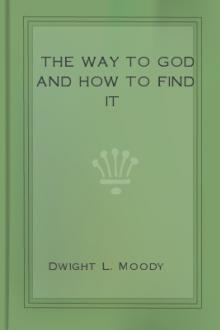
is finding out. It "passeth knowledge" (Eph. iii. 19).
Nothing speaks to us of the love of God, like the cross of Christ. Come with me to Calvary, and look upon the Son of God as He hangs there. Can you hear that piercing cry from His dying lips: "Father, forgive them; for they know not what they do!" and say that He does not love you? "Greater love hath no man than this, that a man lay down his life for his friends" (John xv. 13). But Jesus Christ laid down His life for his enemies.
Another thought is this: He loved us long before we ever thought of Him. The idea that he does not love us until we first love Him is not to be found in Scripture. In 1 John iv. 10, it is written: "Herein is love, not that we loved God, but that He loved us, and sent His Son to be the propitiation for our sins." He loved us before we ever thought of loving Him. You loved your children before they knew anything about your love. And so, long before we ever thought of God, we were in His thoughts.
What

an respect to degrade hisChristian dignity. In whatever company he might be, he alwayssaluted the Blessed Sacrament when passing a Church; and he nevermet a priest without paying him a mark of respect. A word from hislips sufficed to silence whosoever dared blaspheme in his presence.
In reward for his virtues, God showered even temporal blessings onHis faithful servant. In 1871 he was able to give up his businessas a jeweller, and retire to a house in the Rue St. Blaise. Themaking of point-lace, however, begun by Madame Martin, was stillcarried on.
In that house the "Little Flower of Jesus" first saw the sunshine.Again and again, in the pages of her Autobiography, she callsherself by this modest name of the _Little Flower,_ emblematic ofher humility, her purity, her simplicity, and it may be added, ofthe poetry of her soul. The reader will learn in the Epilogue howit was also used by one of her favourite martyr-saints--the nowBlessed Théophane Vénard. On the manuscript of her Autobiography
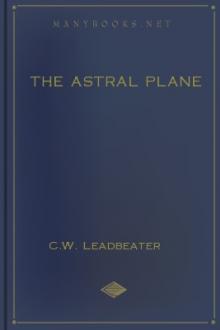
ir background the physical world we live in and all its familiar accessories. Life on the sixth division is simply our ordinary life on this earth, minus the physical body and its necessities; while as it ascends through the fifth and fourth divisions it becomes less and less material, and is more and more withdrawn from our lower world and its interests.
The scenery of these lower divisions, then, is that of the earth as we know it: but it is also very much more; for when looked at from this different standpoint, with the assistance of the astral senses, even purely physical objects present a very different appearance. As has already been mentioned, they are seen by one whose eyes are fully opened, not as usual from one point of view, but from all sides at once--an idea in itself sufficiently confusing; and when we add to this that every particle in the interior of a solid body is as fully and clearly visible as those on the outside, it will be comprehended that under such conditions even the most fam
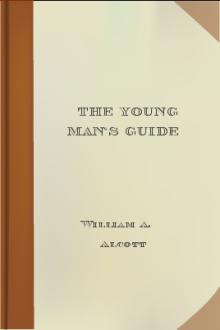
hionable education in fault. 6. Sobriety. Definition of the term. An anecdote. Love of mental and bodily excitement usually connected. 7. Industry. How to judge whether a person is industrious. 8. Early rising. A mark of industry. Late rising difficult of cure. 9. Frugality. Its importance shown. 10. Personal Neatness. Its comforts. 11. A good temper. Its importance illustrated. 12. Accomplishments. 263-305
CHAPTER VII.
--CRIMINAL BEHAVIOR.
Section I. Inconstancy and Seduction.--Constancy. Its importance illustrated by an example. Cruelty of sporting with the affections of a female. Opinion of Burgh. 306-313
Section II. Licentiousness.--Most common in cities. New Orleans. Hint to legislators. A horrid picture. Not wholly imaginary. Avoid the first erring step. Example of premature decrepitude. Anecdote of C. S. Solitary vice. This vice compared with intemp
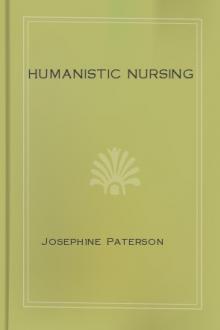
s re-issue of Paterson and {v} Zderad's classic work will help to remind us of another way of developing our power. Perhaps we can, once again, look for and call for authentic dialogue with our patients, our students, and our colleagues. Paterson and Zderad are clear in their method: discuss, question, convey, clarify, argue, and reflect. They remind us of our uniqueness and our commonality. They tell us that it is necessary to do with and be with each other in order for any one of us to grow. They help us celebrate the power of our choices.
Is it ironic and fortunate that Humanistic Nursing should be re-issued now when it is needed even more than it was during the late 1970s? Then, humanitarianism was in vogue. Now, it is under attack as a secular religion.
Today, the technocratic imperative infiltrates an ever-increasing number of our lived experiences; and it becomes more difficult to ignore or dismiss Habermas's analysis that all interests have become technical rather than human.[6]

f his words and acts, the trifles he never considers,--is tremendous. Every moment of life he is changing to a degree the life of the whole world. Every man has an atmosphere which is affecting every other. So silent and unconsciously is this influence working, that man may forget that it exists.
All the forces of Nature,--heat, light, electricity and gravitation,-- are silent and invisible. We never see them; we only know that they exist by seeing the effects they produce. In all Nature the wonders of the "seen" are dwarfed into insignificance when compared with the majesty and glory of the "unseen." The great sun itself does not supply enough heat and light to sustain animal and vegetable life on the earth. We are dependent for nearly half of our light and heat upon the stars, and the greater part of this supply of life-giving energy comes from invisible stars, millions of miles from the earth. In a thousand ways Nature constantly seeks to lead men to a keener and deeper realization
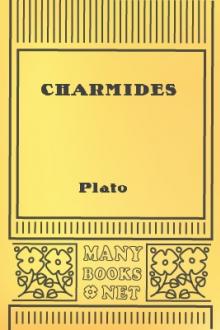
ot worthy of much consideration. For why shouldAristotle, because he has quoted several Dialogues of Plato, have quotedthem all? Something must be allowed to chance, and to the nature of thesubjects treated of in them.) On the other hand, Mr. Grote trusts mainlyto the Alexandrian Canon. But I hardly think that we are justified inattributing much weight to the authority of the Alexandrian librarians inan age when there was no regular publication of books, and every temptationto forge them; and in which the writings of a school were naturallyattributed to the founder of the school. And even without intentionalfraud, there was an inclination to believe rather than to enquire. WouldMr. Grote accept as genuine all the writings which he finds in the lists oflearned ancients attributed to Hippocrates, to Xenophon, to Aristotle? TheAlexandrian Canon of the Platonic writings is deprived of credit by theadmission of the Epistles, which are not only unworthy of Plato, and inseveral passages plagiari